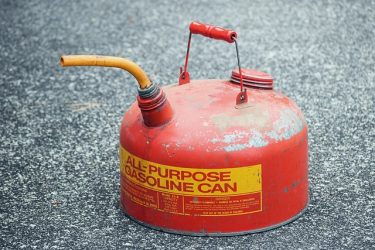Every year, thousands of people in the United States are admitted for gasoline poisoning. Cases can be accidental, such as swallowing gasoline while trying to transfer the fuel via siphoning method. A number of children are also impacted, primarily due to their curious nature. There can also be cases of deliberate ingestion of gasoline.

Whatever be the reason, gasoline can be extremely harmful for health. It can also be fatal if taken in large quantities. For better understanding, let us take a look at what happens if you accidently swallow gasoline.
Coughing and gagging – The body rejects gasoline on its own, as soon as someone tries to swallow it. This can lead to coughing and gagging. The body’s reaction prevents the ingestion of large amounts of gasoline. However, people can still force it down if they are doing it intentionally. In accidental cases, only a small amount may enter the body. However, even small amounts can cause various symptoms and health issues.
Gastrointestinal symptoms – A wide range of gastrointestinal symptoms may occur, as gasoline will irritate the gastrointestinal tract. Common gastrointestinal symptoms associated with gasoline poisoning include vomiting, nausea, abdominal pain and diarrhea. How severe the symptoms are will depend on the quantity of gasoline ingested.
Lung infection – Due to its volatile nature, gasoline can easily enter the lungs. From there, it can be absorbed into the blood and entire body. Gasoline has various toxic volatile substances like benzene, toluene, naphthalene and xylene. In the lungs, gasoline vapors can lead to aspiration pneumonitis or pneumonia. Tissues in the lungs can also be impacted, leading to infection.
Neurological effects – Gasoline impacts the body’s ability to absorb oxygen. As such, patients with gasoline poisoning may have shortness of breath. Symptoms of hypoxia are also likely if the ingested amount is significant. The patient may appear delusional and unable to take proper decisions.
Hematological symptoms – A number of hematological symptoms may be present in cases involving gasoline poisoning. It includes lactic acidosis, hypocapnia, elevated creatinine, elevated anion gap, elevated aspartate aminotransferase, decreased glomerular filtration rate, low protein, elevated total bilirubin, increased blood urea nitrogen and abnormal arterial pH.
Skin lesions – Gasoline poisoning can lead to skin lesions. The skin may develop blisters and patches.
Multi-organ failure – Swallowing large quantities of gasoline can lead to multi-organ failure. This can happen even when treatment may be ongoing. Gasoline can impact vital organs such as the kidneys and heart. If the patient survives, there can be long-term health issues.
It is apparent from above that gasoline poisoning needs to be taken seriously. If someone has swallowed gasoline, they should be immediately taken to the emergency room.
 Newspatrolling.com News cum Content Syndication Portal Online
Newspatrolling.com News cum Content Syndication Portal Online







